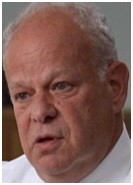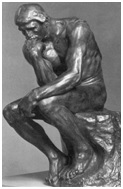|
 |
|
 |
|
|
||
Martin Seligman - Positive Psychology and Success
Martin Seligman (1942- )
American psychologist (pictured right). Founder of positive psychology based on what makes you happy and successful (see point 1)
Who influenced him? Humanistic psychologists like:
His most famous books are… Authentic Happiness (2003) Flourish (2011) These discuss the principles of positive psychology.
What did he say about positive psychology and success? 1. Positive psychology This describes how to achieve happiness and well-being and has three pillars:
2. How to be happy
a) savouring and sharing - the awareness and sharing of past and present pleasures. b) relationships Nurture your family and friendships, and do things for others.
c) use your strengths (see point 3).
d) purpose Do ,and believe, in something worthwhile, creative and absorbing. e) self-support
f) peace of mind This is achieved through:
Seligman summarized these causes of peace and happiness in his PERMA theory: Positive emotions (happiness, serenity, satisfaction and optimism).
Engagement (involvement in a positive experience) Relationships (being loved).
Meaning (doing something worthwhile for others). Accomplishment (achieving something, however small, from determination, self-discipline and creativity).
Money doesn't contribute much to happiness!
3. Fully exploit your virtues and abilities Seligman calls these your “signature strengths” and divides them into six categories: a) wisdom and knowledge
b) courage
c) humanity and love
d) justice
e) temperance
f) transcendence (or spirituality)
Key quote on economics The aim of wealth should not be to blindly produce a higher GDP but to produce more well-being.
Key quotes on happiness Other people are the best antidote to the downs of life. The aim of positive psychology is to catalyze a change in psychology from a preoccupation only with repairing the worst things in life to also building the best qualities in life.
Key quote on love Optimism helps love |
|
|
||
|
|
||
| Copyright © wisdomtowin.com 2025 All Rights Reserved | ||
|



















